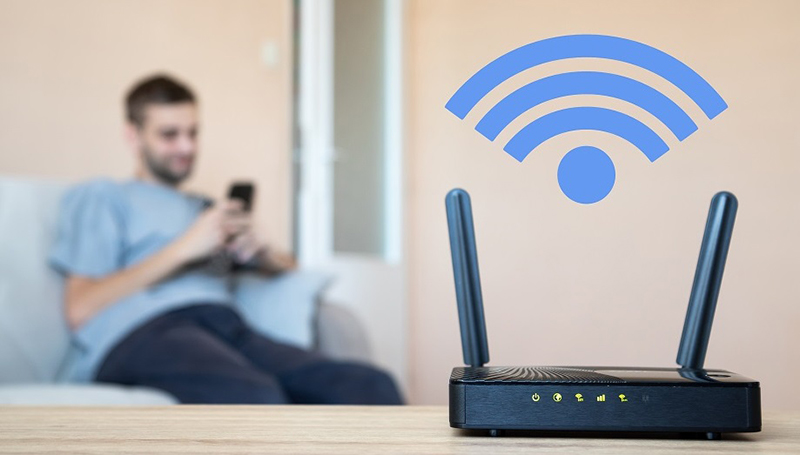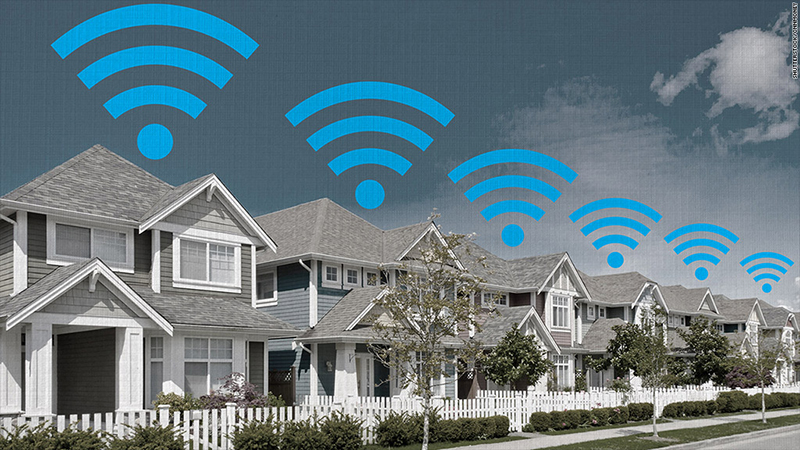
You certainly don’t feel good when your Wi-Fi is down, especially when you have something important to do. The problem can be with your PC, your wireless channel, the strength of the Wi-Fi signal, or even the network itself. It seems difficult to figure out the actual problem. However, there are always solutions.
If your Wi-Fi is suddenly slow and you can’t figure out the problem right away, this article may be able to help you. Below we’ll discuss what can cause Wi-Fi slowdowns.
Router location
Like any other signal, there are limits to where your Wi-Fi signal can reach. This means the further away your device is from the router, the weaker the signal. For this reason, the router can be placed close to the device to get a strong signal. If you don’t have a main area to place and use your equipment, place it in the center of your home.
If your house is large or the signal is still noticeably weak, you will need to increase the broadcast range. To do this, you’ll need to connect a repeater or Wi-Fi extender to your main router. These devices help extend the coverage area of the signal.
Wireless signal interference
There are many wireless signals around you. These signals come from various devices such as cell towers, electronics, satellites, Wi-Fi routers, and more. Although the signal from your router is not at the same frequency as most electronic devices, radio noise can interfere with your Wi-Fi.
Interference from microwaves
It’s also possible that your microwave can cause interference with your network, especially if your router is older. Because the frequency of microwave is about 2.45GHz, which is very close to the Wi-Fi frequency of 2.4GHz.
Most of the time, this interference occurs if your microwave is not adequately shielded. Make sure your microwave is not leaking.
Bluetooth signal interference
Bluetooth is another popular wireless connection that also operates at 2.4GHz. In general, a well-designed Wi-Fi router should have a shield that prevents any kind of interference. Although Bluetooth manufacturers design their devices to use frequency hopping, interference can still occur.
Therefore, keep your router away from Bluetooth devices. Of course, you can turn off the Bluetooth device to experiment first and see if the problem still exists.
Overlapping signals from neighbor Wi-Fi
Almost all homes have their own Wi-Fi network. Too many Wi-Fi routers are in close proximity to each other, and there may be channel overlap. Most of these problems occur in apartments and residential areas.
Channel overlap is problematic for routers that only broadcast on the 2.4GHz frequency. If your Wi-Fi enabled device only accepts 2.4GHz signal frequency. At this frequency, only 14 channels can transmit. Routers broadcast on the same channel and frequency, causing overlap and mutual interference.
To fix this, select the correct channel in your router’s settings. Although modern routers can automatically select the correct transmission channel, it is best to investigate and find the correct channel. Also, update your router regularly and check for any suspicious device connections.
Slow Virtual Private Network (VPN)
A VPN is software that masks your IP address and adds an extra layer of encryption to the connection between the server and your device
You can choose to use a free VPN service or choose to subscribe to a paid service. Paid VPN services are usually faster, but they can still slow down your network. Congestion can occur if the VPN service you choose is used by a lot of people at a given time.
The quickest solution is to try another location provided by the VPN service provider. Different VPNs can offer large speed differences.
ISP problem
If you’ve tried the solutions above and your Wi-Fi is still slow, it’s time to try something more robust. Most people use the router assigned by their ISP or older. For example, older Wi-Fi routers may not support premium service, automatic channel switching, or bandwidth reservation features.
Also, most ISP routers are only basic, and they purposely lack many features to keep costs down. If multiple people use the Internet at the same time, it may cause network congestion. If possible, consider upgrading your router to a more efficient router.
Conclusion
Determining the cause of a slow internet connection can be challenging. If you’ve exhausted your physical possibilities, it’s time to try a digital solution. Try changing your DNS settings. Also, if you’ve tried all of these solutions, you can call your ISP and ask for help.
We have a one-stop shop for all web products. We have established a fast, safe, global and reliable supply chain, providing branded products and customized services to 18,000+ enterprise customers and partners. Contact us to learn more about our wide range of IT solutions.
Want to know more, please click here:
Buy 5G Routers
Router-switch.com Official Website
About Router-switch.com
Join Router-switch.com
Contact Router-switch.com
Read More:
MikroTik vs Ubiquiti: Which WiFi Router or AP for Home is Better?
OPPO 5G CPE T1a WiFi Router: 5G Is Enough For The Whole-Home
OPPO 5G CPE T1a Unboxing: How Is The 5G WiFi 6 Router Experience At Home?
What are the Differences? Wired vs. WiFi vs. Wireless Camera





